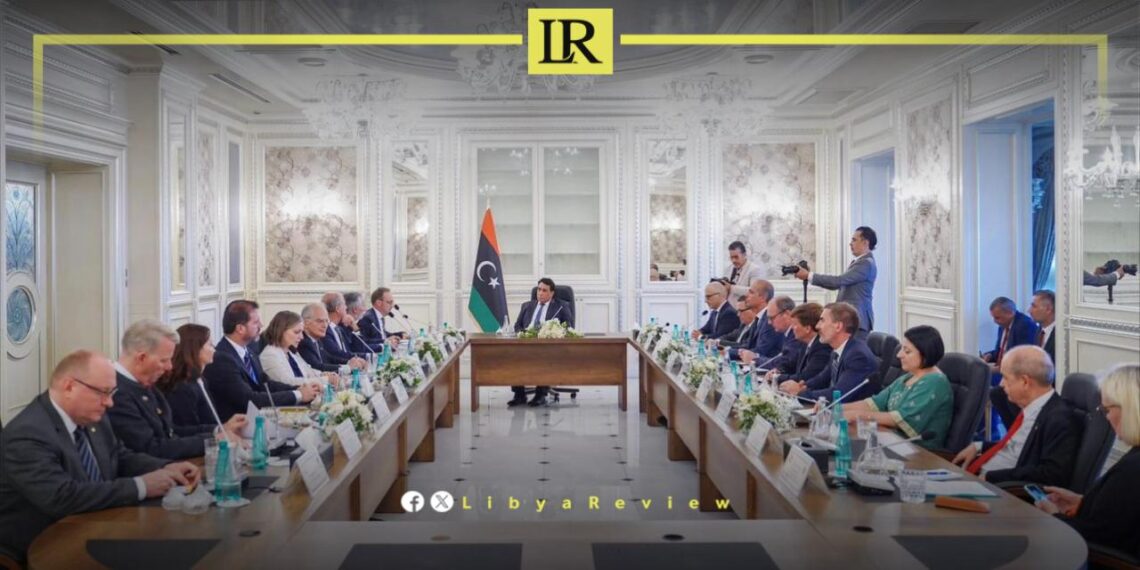On Wednesday, European Union (EU) ambassadors to Libya reaffirmed their unwavering support for the national reconciliation project spearheaded by the Presidential Council. This project is a crucial part of ongoing efforts to bring Libya closer to national elections and long-term stability.
This came during their meeting with the head of the Presidential Council, Mohamed Al-Mnifi, at the council’s headquarters in Tripoli. The discussions addressed the latest political developments in Libya.
During the meeting, both parties stressed the importance of the United Nations Support Mission in Libya (UNSMIL) in facilitating a Libyan-led and Libyan-owned political process. The EU ambassadors welcomed the call for municipal elections and urged for these elections to be conducted nationwide.
The conversation also included support for Libya in expelling fighters, mercenaries, and foreign forces, and establishing a national mechanism for the transparent and fair distribution of the budget and resources.
The ambassadors emphasized the need for coordinated efforts to combat illegal immigration, terrorism, and organized crime. They cautioned against the destabilizing effects of financial corruption in the Mediterranean and Sahel regions. They endorsed the creation of a national mechanism to combat financial corruption, with training and support provided by the EU.
Libya has faced ongoing political instability and division since the fall of Muammar Gaddafi in 2011. The country has been split between rival administrations in the east and west, each backed by various militias and foreign powers. Efforts to unify the country have been persistent but challenging, with the Presidential Council and the Government of National Unity (GNU) at the forefront of these initiatives.
The national reconciliation project is a vital component of these unification efforts. It aims to address the grievances of different factions, promote inclusive governance, and set the stage for national elections. The support from the European Union is crucial, given the EU’s geopolitical interests in the Mediterranean and concerns over security threats emanating from a destabilized Libya, including terrorism and illegal immigration.
EU support is a diplomatic gesture and a strategic move to ensure stability in a region critical to European security and economic interests. The focus on transparent budget distribution and anti-corruption measures aligns with broader international efforts to ensure that Libya’s resources benefit its people and contribute to sustainable development.


